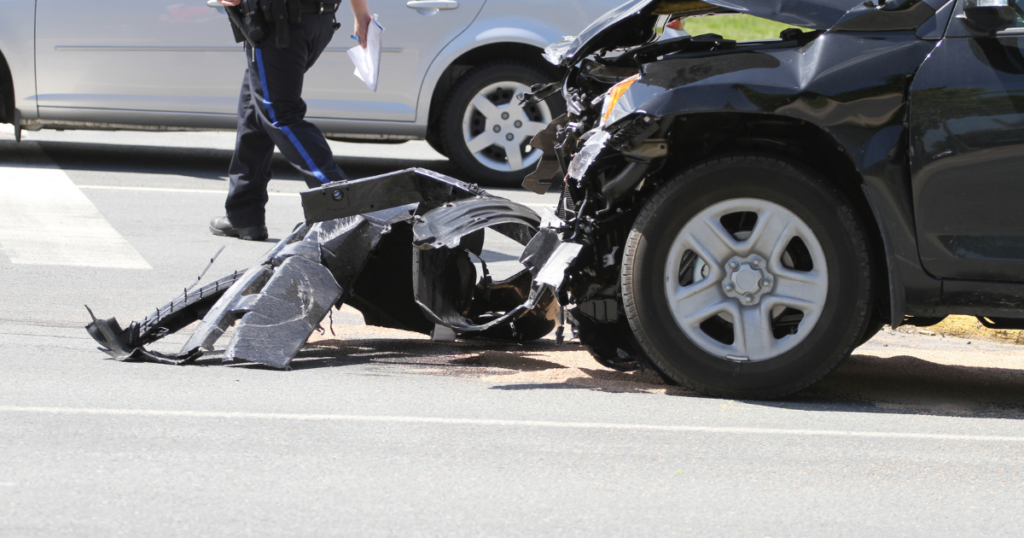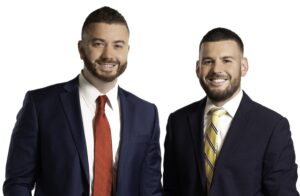Washington Car Accident Lawyer
Hurt in a Car Crash in Washington? Contact Our Washington Car Accident Lawyers Today
At Etemi Law, our Washington car accident lawyers fight aggressively to help injured victims secure the maximum financial compensation after a crash. You do not have to take on an insurance company alone—we have what it takes to hold them accountable. If you or your loved one was hurt in a crash and you are looking for a car accident attorney near me, we are more than ready to help. Contact us today to set up a free consultation with a top-rated Washington auto accident attorney.
Call us today at (203) 409-8424 for a


Car Crashes are a Leading Cause of Accidental Injuries
Car crashes are a major concern in our region. According to data from the Connecticut Crash Data Repository, there are approximately 100,000 crashes reported in the state each year. It is a grave problem—with hundreds of people being killed and tens of thousands being hurt in motor vehicle accidents in Connecticut annually. These wrecks are largely avoidable. Victims of car crashes often suffer from a wide range of injuries, which can range from minor to life-threatening. Some common types of injuries sustained in car accidents include:
- Lacerations and contusions;
- Soft tissue damage, including whiplash;
- Fractured and broken bones;
- Concussions and traumatic brain injuries (TBIs);
- Internal bleeding and internal organ damage;
- Amputations;
- Spinal cord injuries; and
- Whiplash.
Your Guide to Auto Accident Liability in Connecticut
Understanding auto accident liability in Connecticut is crucial for any person involved in a serious accident. Our state uses an at-fault standard of liability and it follows a modified comparative negligence system. These could have major ramifications for your personal injury case. Here is what you need to know:
- At-Fault Liability in Connecticut: Any party found to be responsible for a crash can be held liable for the damages. At-fault liability refers to the responsibility of a driver, trucking company, or any other party for causing an accident due to their negligence. Negligence is the failure to take due care. It comes in many forms—from a speeding driver blowing through a red light to a truck company failing to properly inspect its vehicles.
- Comparative Negligence is Proportional Fault: Comparative negligence is a legal principle used in Connecticut to determine each party’s degree of fault in an accident (C.G.S.A. § 52-572(h)). Under this system, the court or insurance company will assign a percentage of fault to each driver involved in the accident. A driver found partially at fault for their accident will bear partial liability for their damages. For example, if you were 30 percent to blame for a crash in Hartford, you are liable for 30 percent of your losses.
We Help Car Accident Victims Fight for Full and Fair Compensation

Putting the pieces back together after a serious car crash can be challenging. You do not have to figure everything out on your own. Injured victims in Connecticut can seek compensation for economic and intangible damages—but the big insurance companies can put hurdles in the way. Our car accident lawyers near Hartford go the extra mile to help our clients secure the absolute maximum recovery. You may be entitled to compensation for:
- Vehicle repairs;
- Hospital bills;
- Other medical expenses;
- Lost wages;
- Loss of earning power;
- Pain and suffering;
- Disability/disfigurement; and
- Wrongful death.
Looking for a Car Accident Attorney Near Washington, CT? You Need Etemi Law
Dealing with the aftermath of a car crash is never easy. You probably have a lot of questions about what comes next. Our founding attorneys Lou Etemi and Ron Etemi are standing by, ready to walk you through every step of the claims process. We are proactive. When you reach out to our law firm, you will have an opportunity to consult with a Connecticut auto accident lawyer who can:
- Hear your story and answer any questions you have about your legal case;
- Carefully investigate the crash, securing all evidence to establish liability;
- Connect you with the right doctors and gather/organize your medical records;
- Represent you in car accident settlement negotiations with insurers; and
- Develop a personalized legal strategy focused entirely on getting you the best results.
Call Our Washington Car Accident Lawyers for a Free Consultation
At Etemi Law, our Washington car accident lawyers are experienced, effective advocates for victims and their families. If you or someone you know was seriously hurt in a crash, we can help. Contact us now to set up your free, fully private initial consultation. With law offices in Waterbury and Watertown, we handle motor vehicle accident injury claims throughout the Greater Hartford area.
On the narrow commuter corridors that feed Washington, Connecticut, the pressure at merge points can feel acute. Route 45 funnels morning commuters, school runs and delivery trucks toward the town center, where the narrow streets of Washington Depot constrict sightlines and turn routine lane changes into risky maneuvers. Drivers coming from outlying valleys mix with local traffic, so a hesitating vehicle at a merge can quickly multiply into a chain collision.
Weekends and holidays amplify that risk when visitors pour onto the access roads for Lake Waramaug, creating erratic merges between through traffic and slow-moving trailers or SUVs. Common crash types here are rear-end compressions, side-impact merges and single-vehicle run-offs where rural speeds meet sudden congestion. Typical injuries recorded after these collisions include whiplash and soft-tissue trauma, rib and limb fractures, spinal compression and, in the worst cases, traumatic brain injury.
When emergency crews respond in this region they often route injured motorists to Danbury Hospital for initial stabilization; depending on injury severity, patients may need interfacility transfers to tertiary trauma centers. Those early transport decisions shape medical records: EMS run sheets, ER imaging and transfer notes all determine timing for procedures and the start of rehabilitation. Short inpatient stays commonly give way to outpatient physical therapy with local clinics handling follow-up care.
As an investigative reporter I watch how patterns emerge from the debris: skid marks on merge lanes, vehicle crush consistent with angle impacts, dashcam clips from passing commuters and medical timelines showing delayed symptom onset. For residents the months after a crash become a practical logistics problem — balancing imaging follow-ups, rehab appointments and sometimes transfers — a recovery rhythm shaped as much by road geometry and commute patterns as by the injuries themselves.
